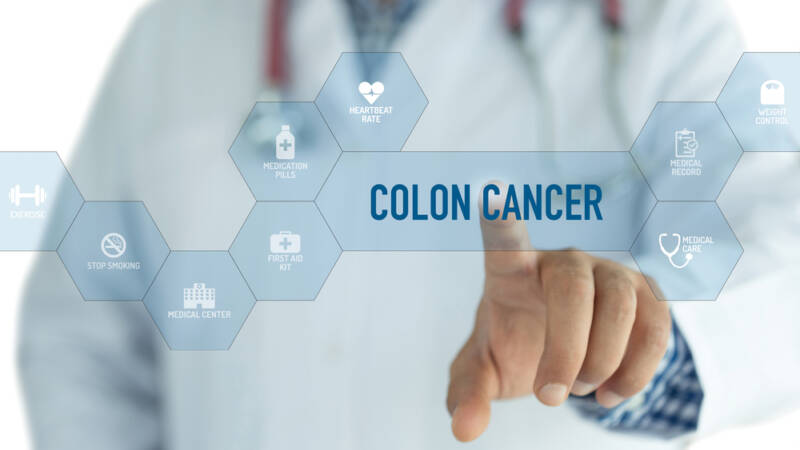Everything you Need to Know About Colon Cancer

According to the World Cancer Research Fund, colon cancer is the third most common form of cancer in the world today. Colon cancer (also known as colorectal cancer) is the second most deadly cancer for both men and women in the United States today. While official figures have not yet been released, it is thought that more than 53,000 Americans died as a result of colon cancer in 2020 alone. The Centers for Disease Control and Prevention (CDC) recommend routine colon cancer screening for person’s over 50 years old, as the disease is far more prevalent in mature adults.
What Is Colon Cancer?
Colorectal cancer refers to a group of cancers affecting either the colon or rectum. Both the colon and rectum make up the lower digestive tract, or large intestine. The colon accounts for most of the large intestine, with the rectum accounting for the bottom six inches closest to the anus. Colorectal cancer occurs when cells in either the colon or rectum are damaged and begin to grow at an unhealthy rate, forming malignant tumors that may spread to other parts of the body if left untreated.
Types
Adenocarcinomas of the colon and rectum make up 95 percent of all colorectal cancer cases. The main types of colon cancer are:
- Colorectal adenocarcinoma – The most common type of colon cancer, which begins in the lining of the large intestine.
- Primary colorectal lymphomas – This type begins in the lymph nodes and later spreads to the colon. It accounts for less than 0.5% of all cases.
- Carcinoid tumors – This type of cancer starts in gastrointestinal nerve cells, and accounts for less than 1% of all cases.
- Stromal tumors – This extremely rare cancer usually begins in the stomach and spreads to the large intestine.
- Leiomyosarcomas – The rarest form of colon cancer which begins in the muscle of the large intestine. It accounts for less than 0.1% of cases.
Known Causes and Risk Factors
Age is by far the biggest risk factor, with 90% of all colon cancer cases occurring in people over 50 years old. Other risk factors include:
- A family history of colorectal cancer
- Inflammatory bowel diseases like Crohn’s disease or ulcerative colitis
- Obesity
- Alcohol and tobacco use
- A diet high in fat or processed meats
- A diet low in fruits, vegetables, and fiber
Early Signs and Symptoms
The most common symptoms of colorectal cancer are:
- Blood in the stool or rectal bleeding
- Persistent diarrhea or constipation
- A feeling of not fully emptying the bowel
- Weight loss
- Extreme fatigue
Treatment Options
Colon cancer is highly treatable when caught early. In fact, the five-year survival rate for localized colon cancer is 90 percent. Treatment often includes surgery to remove the cancer. Surgical options for colorectal cancer include:
- Surgical resection – Removal of the tumor and surrounding healthy tissue; the most common treatment.
- Laparoscopic surgery – Several scopes are passed into the abdomen; incisions are smaller and the recovery time is shorter.
- Colostomy – Involves creating a stoma through which the colon is connected to the abdominal surface to allow waste to exit the body, which is collected in a pouch worn by the patient.
- Radiofrequency ablation (RFA) or cryoablation – Used on the liver or lungs to remove tumors that have spread to those organs. Radiofrequency waves heat the tumors (RFA) or freeze the tumor (cryoablation).
Chemotherapy and radiotherapy may also be used to shrink a tumor that cannot initially be removed.
Search online for more information about this disease. If you have concerns, are experiencing any persistent change in bowel habits, or have any of the symptoms discussed, book an exam with your doctor immediately.